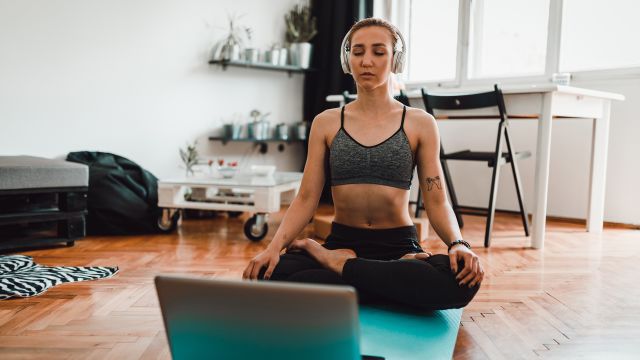If you have multiple sclerosis (MS), you may feel as though maintaining a fitness routine is more than you can handle—after all, simply getting around can be challenging at times—and does working out really help MS anyway? A fitness routine can offer numerous physical and mental benefits to someone with MS. Below are four MS exercises recommended by the National Multiple Sclerosis Society. Before starting any exercise program, speak with your healthcare provider about what activities are safe and how to exercise safely.
Water exercises
For MS patients who may have problems with spasticity (stiffness or tightness) in their lower extremities, some light swimming or working out in a pool can be a game changer. The buoyancy of the water can help a person perform exercises that would not be possible out of the water. It allows greater movement and flexibility and provides extra support for limbs, and its resistance can strengthen muscles. Most YMCAs and community centers with a pool offer open swimming or aquatic fitness classes.
Yoga
If you have MS, there’s a lot to love about an activity in which participants focus on breathing mindfully, stretching their muscles and working to keep their bodies properly aligned and balanced. Yoga’s gentle nature seems tailor-made for people with MS, who may not want anything that’s high impact. Before choosing a class, find out what style of yoga is offered at the studio, and if yoga poses can be adapted to your abilities. Bikram Yoga, which is performed in a studio heated to a minimum of 105 degrees Fahrenheit, is not recommended, since hot environments may temporarily worsen MS symptoms.
Tai chi
The hallmarks of this ancient Chinese practice are deep breathing, along with a series of slow, gentle movements that improve balance. Studies not involving people with MS have shown that along with better balance, tai chi lowers blood pressure and improves cardiovascular (heart and blood vessel) health.
General household chores
Going to a gym or enrolling in classes are not the only activities that can benefit your fitness. For many MS patients, staying active around the house can benefit strength, cardiovascular fitness and mobility. Gardening, cooking, cleaning and organizing can all contribute to your health. If MS makes specific everyday activities a challenge, talk to your healthcare provider about occupational therapy. Occupational therapists specialize in helping people perform daily living activities that are made challenging by a health condition.
How often should you exercise?
Remember that it's different for every MS patient, which is why it is important to speak with your healthcare provider before starting an MS exercise program. It is also important to recognize that your capabilities may vary day to day—be honest about how you feel, and learn to recognize what your body needs on a given day.





